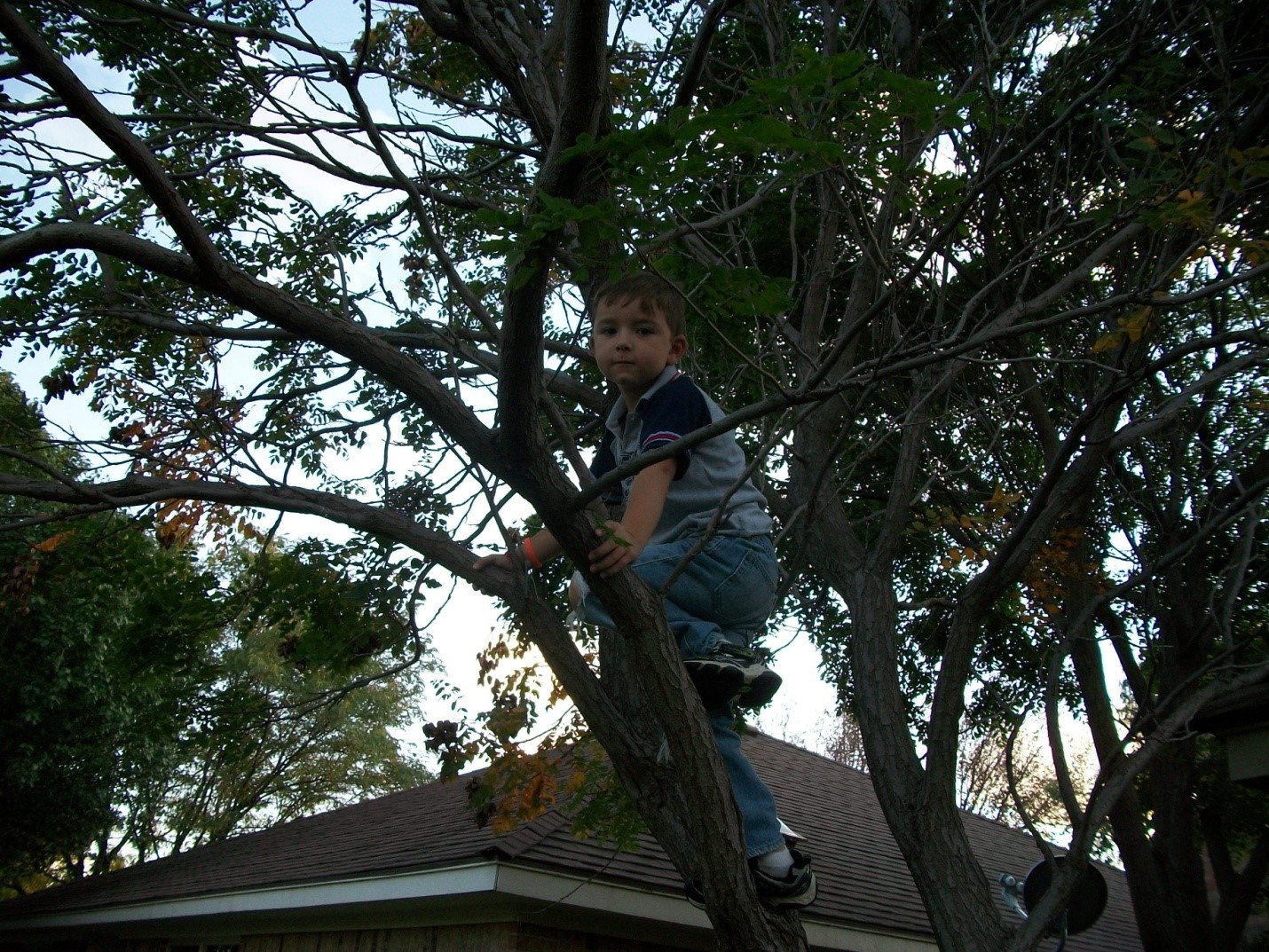Our Journey with Dyslexia
Dyslexia is hard to explain. Most people think dyslexia is a learning disorder that causes people to see letters backwards or that it causes letters to seem as if they are floating around on the page making it hard to read. That’s not what dyslexia is like. This is the current definition:
“Dyslexia is a specific learning disability that is neurobiological in origin. It is characterized by difficulties with accurate and/or fluent word recognition and by poor spelling and decoding abilities. These difficulties typically result from a deficit in the phonological component of language that is often unexpected in relation to other cognitive abilities and the provision of effective classroom instruction. Secondary consequences may include problems in reading comprehension and reduced reading experience that can impede growth of vocabulary and background knowledge.”
That’s an excellent definition, but it’s a lot to digest. Calling dyslexia a learning disability usually trips people up. However, a learning disability simply reflects a natural variation in brain function that creates an unexpected difficulty. In fact, key to the definition of dyslexia is that the reading difficulty is unexpected in relation to other cognitive abilities. Dyslexia is not an eye or vision problem. It is neurobiological in origin, which means the deficit occurs at the neuronal (relating to neurons) level. The core deficit of dyslexia resides in the phonological system and can vary in severity for each individual. It affects reading and related language-based skills such as fluency, automaticity, or the ability to do things automatically, comprehension, recall, writing, spelling, decoding, and sometimes speech.
Watch this video to learn more about what dyslexia is and what it is not.
Honestly, there is just too much I want to say about dyslexia.
I am going to resist the urge to write an article that attempts to explain it all so clearly in that by doing so, miraculously, no one will ever again think of a person with dyslexia as someone who is lazy, not trying hard enough, or not very smart. The stigma surrounding dyslexia makes it tempting to focus solely on helping others understand specifics about the disorder in an effort to reduce some of the stigma attached to it. But, I’m not a neuroscientist and I would surely botch it up big time if I tried!
And, that’s not primarily what we are trying to do here today. In this article, my family and I are going to share our journey with dyslexia. You will find photos and videos we made for you inserted throughout the article. We were so nervous while making the videos! But we are hoping that by sharing our story, it might encourage other people with similar struggles and help them feel less alone.
Our son, Evan, was diagnosed with dyslexia in the fifth grade.
Today, he is a sophomore in high school. Evan is very bright and funny. He is sensitive and compassionate. He is tall with huge feet! He is athletic and loves the outdoors. He is a deep thinker and a problem solver. He is very loving and affectionate.


There were signs early on that indicated Evan was struggling to learn to read and spell. He was placed in a reading intervention program in the first grade and remained in one throughout his elementary and intermediate school years. We enrolled Evan in reading programs during the summer months, thinking that with more practice, one day it would all click for Evan and his struggles to read and spell would disappear. That’s what all of his teachers said, too. They all said Evan is very smart, attentive and engaged in class. They felt certain, in time, it would all come together for Evan. That one day it would “just click”.

In the fourth grade, the school counselor approached us about having Evan evaluated for dyslexia. She said, “If the diagnostic evaluation shows that Evan has dyslexia, his teachers will be able to provide him with needed accommodations in the classroom. The school will be allowed to provide testing accommodations – like extra time for assessments and help reading long passages. He will be protected under Section 504 of the U.S. Rehabilitation Act and that will follow him all the way through junior high and high school and on into college. He will be allowed to receive academic accommodations starting now and can continue to receive them until he graduates from college.”
I don’t know if it was pride or ignorance. Probably a whole lot of both, but our first response was to decline the evaluation. My husband and I didn’t want Evan to have a “label” placed on him when he was so young with plenty of time to improve his reading skills. And, I didn’t like the word “accommodations”. In my mind, accommodations meant the teachers were going to stop trying to teach Evan and that Evan was going to stop trying so hard to learn. We just knew that if we could hang in there a little longer, “it would all click” for Evan and we could move on down the road.
Sadly, I remember telling Evan on several occasions, “Evan, I know learning to read isn’t the most fun thing you could be doing right now. I know you’d rather be outside, playing with your buddies. I know you don’t want to memorize spelling words and sight words, but you’re going to have to buddy. No one else can do it for you. I feel like you are hoping that if you ignore the task of learning to read long enough, the teacher will move on to the next subject and you can get by without having to learn all of this. But it doesn’t work that way. You are going to have to dig in, focus, and learn how to read.”
I honestly thought Evan would rather be outside than at school. That learning to read and spell was so boring to Evan that he decided he wasn’t going to do it. He has always been such a quick learner in everything he tries! It was the only thing that made sense to me. Reading was something he could do, but he just chose not to. I don’t know why I was thinking that way. It didn’t line up at all with Evan’s sweet disposition and his eagerness to comply.


Dyslexia is Common.
According to The Yale Center for Dyslexia and Creativity, it affects close to 20% of the population. It is the most common of all neurocognitive disorders. Dyslexia often runs in families.
My husband, Gannon, has dyslexia. He wasn’t aware that it was dyslexia that made school such a struggle until we were meeting with educational psychologists for Evan’s evaluations. Gannon regularly spells words like they sound. As a child he was placed in special education classes. He was held back in the fifth grade. And, he was told repeatedly he isn’t fit for college. Like Evan, Gannon is very intelligent. He is a big picture thinker and very logical. He sees things systematically and is an excellent leader. In school he found creative ways to navigate and progress, but he came out of every educational environment with insecurities, a chip on his shoulder, and a determination to prove the naysayers wrong.
He wanted to prove that he is not dumb, that he is capable of being successful, and that he can do anything anyone else can. He did and continues to do so. Gannon went to college and graduated with a bachelor’s degree in Behavioral Science. The degree opened many doors for Gannon professionally. Today, his problem-solving and communication skills are highly valued in his workplace. But it took him a long to time to truly overcome the hardships he faced in school due to dyslexia and the lack of support for learners like him.
People with dyslexia experience shame and stigma.
Stigma is defined as a mark of disgrace that sets a person apart from others. It most often refers to a set of negative and unfair beliefs that a society or group of people have about a particular circumstance, quality, or person. Most of the shame and stigma a person with dyslexia experiences takes place on school campuses because that’s where the deficit is revealed and is most noticeable. Stigma exists on school campuses mainly because many educators and students don’t know much about dyslexia. Some may even have negative attitudes or beliefs about it. Unfortunately, human beings tend to be suspicious of or maintain unfair beliefs about things we haven’t personally experienced. Thankfully, as we grow in knowledge and understanding, usually our compassion grows too. There are three things needed to reduce shame and stigma associated with dyslexia – knowledge, acceptance, and support.
Many well-known people with dyslexia are using their platform to help reduce some of the shame and stigma associated with dyslexia.











Watch a video on navigating life’s changes with Dyslexia.
Many young people with dyslexia experience anxiety directly related to the academic hardships they face each day. They often anticipate failure. Many feel alone and misunderstood.
Almost every morning before school, Evan has an upset stomach. He wakes up feeling anxious. His hands are often sweaty. He’s irritable and nervous. He’s had panic attacks. He likes to get to school early, so he can find his bearings. He’s a list-maker. He likes to list out everything he needs to do and then cross them off as he goes. He often texts me from school wanting to come home. Although he is exhausted at the end of the day but will have at least two hours of homework each evening.
It’s like he is always climbing uphill or under water. School is not easy for him, ever. There are never days when he can coast. He gets burnt out. We live for the weekends. Sometimes, he worries about what others think of him. At one time, he tried to hide his struggles from his classmates; fearing they would think he isn’t smart and say unkind words. However, he has been doing his own research about dyslexia and the more he learns, the less shame he feels. There was once a day when hearing the word dyslexia made his eyes fill with tears. Now, it’s no longer painful.
Like many others with dyslexia, Evan has developed a very strong work ethic and effective coping strategies to manage stress and anxiety. He likes to exercise, play video games, work on his truck or out in the garden, go fishing, build something or paint, or watch Netflix. He’s learning to advocate for himself on campus and he talks openly with his family about his thoughts and emotions.
If someone in your life has dyslexia, your help could make a world of difference. People with dyslexia need people in their corner who understand them. People who believe in them! They need people who can remain positive in a sea of academic challenges and setbacks. People with dyslexia have many strengths, talents, and skills that are often overlooked. They need more encouragers and fewer critics.
If you would like to learn more about dyslexia and ways to help, watch “Embracing Dyslexia”. Although it was produced in 2013, change is coming in at a snail’s pace in terms of dyslexia awareness and support, so the information is still accurate.
Embracing Dyslexia trailer
Embracing Dyslexia full documentary
Thank you so much for reading about our journey with dyslexia and watching our videos. I hope you have a better understanding about dyslexia and the anxiety it can create. If you have dyslexia or love someone who does, I hope you feel less alone in the struggle.
 April Tucker completed her Master’s Degree in Social Work at West Texas A & M University. She has over 25 years of experience serving children, teens, and families in the Texas Panhandle and East Tennessee. With a passion for teaching and learning, April most enjoys helping young people grow in their knowledge about mental health. She loves interacting with students, learning from them, and helping them to become better equipped to protect and strengthen their own mental health.
April Tucker completed her Master’s Degree in Social Work at West Texas A & M University. She has over 25 years of experience serving children, teens, and families in the Texas Panhandle and East Tennessee. With a passion for teaching and learning, April most enjoys helping young people grow in their knowledge about mental health. She loves interacting with students, learning from them, and helping them to become better equipped to protect and strengthen their own mental health.





